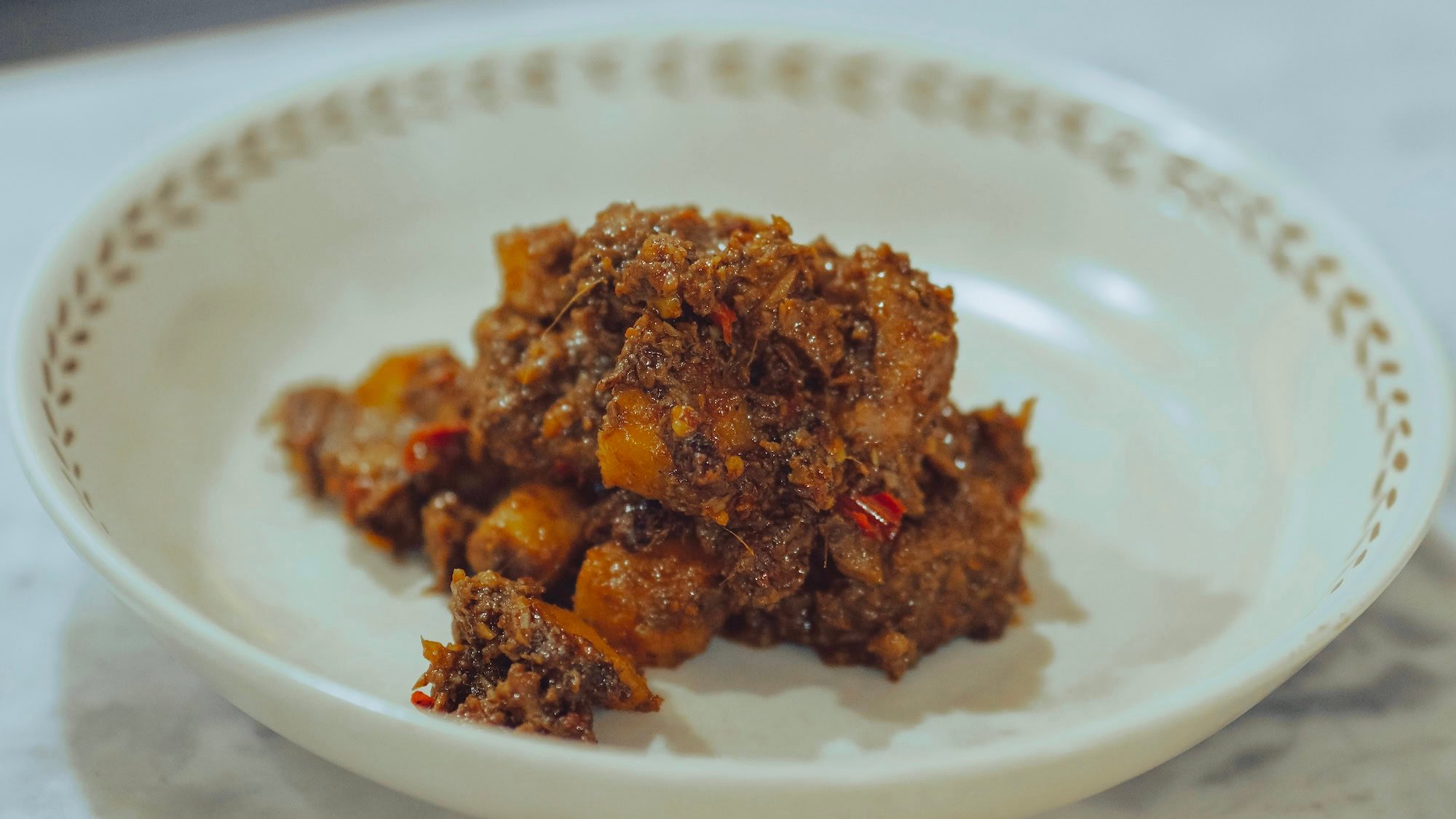How to Use Cloves
The Bold Buds
Pungent · Sweet · Bitter · Peppery

Cloves are deep, dark, dramatic, sweet, smoky, and medicinal all at once. They offer both richness and brightness thanks to a unique balance of warming and cooling notes. A single bud can infuse a dish for four, so they demand restraint but reward richly.
FORMS
- Whole cloves shine in lentil soups, meaty broths, root vegetable roasts, and spiced drinks. They offer a more subtle and prolonged flavor, ideal for infusing.
- Ground cloves are very potent, so always start small and adjust to taste. Grinding releases their full potency immediately; a literal burst of floral warmth. Just one powdered bud can transform baked goods, braised meats, masalas, marinades, and barbecue rubs. For more subtlety, pair ground cloves with other complementary spices or herbs from the list above to soften their edge.
STORAGE
- Whole cloves are among the longest-lasting spices when stored in an airtight container in a cool, dry, dark place. Their hard structure helps lock in their oils, often retaining high quality for 3 to 4 years.
- Ground cloves, however, deteriorate rapidly—both in flavor and medicinal strength—and should be bought in small quantities and used within days. For peak freshness, buy whole cloves and grind as needed. If you find yourself with a large batch of ground cloves, you can slow flavor loss by storing it in the freezer in a tightly sealed container.
PREPARATION
- Grinding: Cloves' flavor compounds (especially eugenol and caryophyllene) evaporate quickly after grinding, so it's best to do so right before cooking. If you're looking for a softer, sweeter flavor, separate the bud (the rounded head and petals) from the woody stem, which is hotter and more astringent. Cloves are dense and fibrous, so use a sturdy electric spice grinder for a fine powder or crush them in a mortar and pestle and remove the big pieces prior to use.
- Infusing & Pickling: Whole buds can infuse syrups and vinegars, allowing you to create unique condiments and flavoring agents. For example, clove-infused vinegar can be used to pickle vegetables or add a tangy vibe to salad dressings.
COOKING
- When to Add: Unlike many spices, toasting cloves is generally not recommended. It drives off their delicate top notes and amplifies bitterness. Instead, add them whole early in the process so their essential oils have time to diffuse from the bud. Ground cloves can be sprinkled near the end so their full aroma is present when the dish is served.
- Blooming: Clove’s main flavor compounds are oil-based and do not dissolve well in water, so they shine when cooked with fats, dairy, or alcohol. With that said, cloves are so potent that dropping a single bud into tea will bring a noticeable and welcome change. Its natural sweetness and warmth will come through even in water, eliminating the need for sugar.


